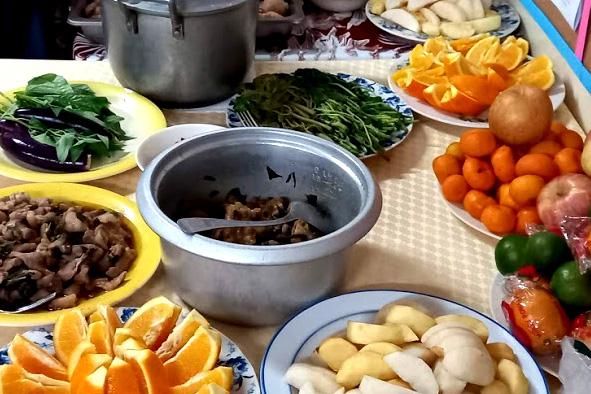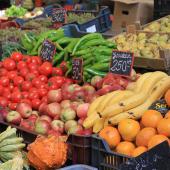World Food Safety Day

On August 3, 2020, the World Health Assembly passed Resolution WHA73.5 to recognize World Food Safety Day as an important milestone and platform for raising awareness at all levels about the importance of food safety, and for promoting and facilitating actions to prevent food-borne diseases at local, national, regional and global levels.
On December 20, 2018, the United Nations General Assembly adopted resolution 73/250 proclaiming a World Food Safety Day. As of 2019, every June 7 has been designated as a time to celebrate the myriad benefits of safe food.
A proposal to establish a World Food Safety Day went before the Second Committee of the 73rd session of the United Nations General Assembly. Following their October/November 2018 discussion, it was approved and went before the General Assembly for final adoption.
Costa Rica announced its intention to bring a resolution to the Second Committee of the General Assembly during a meeting on sustainable development at the United Nations in New York on July 12, 2018.
The 40th Session of the FAO Conference in July 2017 adopted a resolution in support of a World Food Safety Day and the World Health Organization expressed its support in December 2017.
The Codex Alimentarius Commission at its 39th session, held in 2016, unanimously agreed to promote a proposal to proclaim a World Food Safety Day on a permanent basis within the framework of the United Nations.
Food Safety and the United Nations
Keeping food safe is a complex process that starts on the farm and ends with the consumer. All stages of the food chain, from production, harvest and storage to preparation and consumption, must be considered.
The Food and Agriculture Organization of the United Nations is the only international organization overseeing food safety along all aspects of the food chain.
Through a longstanding partnership, FAO and the World Health Organization support global food safety and protect consumers’ health. FAO addresses food safety issues along the food chain during production and processing, while WHO typically oversees relationships with the public health sector. Safeguarding food, so that it is safe to eat doesn’t stop with its purchase, though. At home, consumers have a part to play in making sure that what they eat remains safe.

Why improving food safety is important
Access to sufficient amounts of safe food is key to sustaining life and promoting good health. Food-borne illnesses are usually infectious or toxic in nature and often invisible to the plain eye, caused by bacteria, viruses, parasites or chemical substances entering the body through contaminated food or water.
Food safety has a critical role in assuring that food stays safe at every stage of the food chain — from production to harvest, processing, storage, distribution, all the way to preparation and consumption.
With an estimated 600 million cases of food-borne illnesses annually, unsafe food is a threat to human health and economies, disproportionally affecting vulnerable and marginalized people, especially women and children, populations affected by conflict, and migrants.
An estimated 420,000 people around the world die every year after eating contaminated food and children under five years of age carry 40 percent of the food-borne disease burden, with 125,000 deaths every year.
World Food Safety Day on June 7 aims to draw attention and inspire action to help prevent, detect and manage food-borne risks, contributing to food security, human health, economic prosperity, agriculture, market access, tourism and sustainable development.
Food safety is everyone’s business
Under the theme “Food safety, everyone’s business,” the action-oriented campaign promotes global food safety awareness and calls upon countries and decision makers, the private sector, civil society, UN organizations and the general public to take action.
The way in which food is produced, stored, handled and consumed affects the safety of our food. Complying with Global food standards, establishing effective regulatory food control systems including emergency preparedness and response, providing access to clean water, applying good agriculture practices (terrestrial, aquatic, livestock, horticulture), strengthening the use of food safety management systems by food business operators, and building capacities of consumers to make healthy food choices are some ways in which governments, international organizations, scientists, the private sector and civil society work to ensure food safety.
Food safety is a shared responsibility between governments, producers and consumers. Everybody has a role to play from farm to table to ensure the food we consume is safe and will not cause damages to our health. Through World Food Safety Day, WHO pursues its efforts to mainstream food safety in the public agenda and reduce the burden of food-borne diseases globally.
Radio Veritas Asia (RVA), a media platform of the Catholic Church, aims to share Christ. RVA started in 1969 as a continental Catholic radio station to serve Asian countries in their respective local language, thus earning the tag “the Voice of Asian Christianity.” Responding to the emerging context, RVA embraced media platforms to connect with the global Asian audience via its 21 language websites and various social media platforms.












